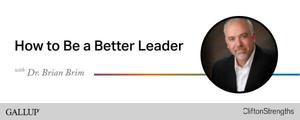Late one afternoon in February 2022, Mercedes-Benz Financial Services (MBFS) Korea’s Vice President of Sales Philip Park sighed. He lifted his eyes from the January sales report to his office window as darkness gradually fell over Seoul. Park was faced with a problem: January’s financing penetration rate -- the share of new Mercedes-Benz vehicles sold in Korea financed by MBFS -- had fallen to a historic low. Following a tough year in 2021, Park had been confident that January’s sales figures would show signs of improvement. Instead, the decline continued.
What Park didn’t know then was that his leadership would help MBFS Korea achieve an extraordinary turnaround by the end of the year, resulting in a 10-times sales increase.
On that day in February, as he considered ways to revive the company’s declining sales, Park was confronted with a daunting array of leadership challenges:
A difficult and demanding business environment: Several factors in Korea’s post-pandemic economic recovery posed significant challenges to MBFS Korea’s financing business. While demand for Mercedes-Benz vehicles was robust -- often exceeding available inventory -- many cars were purchased by customers who did not require financing.
Intense competition: The competitive landscape had evolved rapidly to pose a significant threat to MBFS Korea’s leadership position and market share. Banks and other financial services providers offered vehicle financing at extremely competitive interest rates.
Declining employee engagement: According to MBFS Korea’s Head of Human Resources Kyung-Woon Jang, the company’s 2021 employee engagement pulse survey results were low -- likely contributing to talent retention and sales performance issues.
Increased staff turnover: Along with low engagement, talent retention was a key challenge for the company. Staff turnover was affecting the performance of Park’s sales and marketing team.
What Park didn’t know then was that his leadership would help MBFS Korea achieve an extraordinary turnaround by the end of the year, resulting in a 10-times sales increase.
These challenges are common among senior executives, and it is important for leaders to tackle them to lead through change and enable their teams to deliver consistently strong performance. However, in 2022, Park and MBFS Korea were faced with addressing all of them simultaneously.
A Crisis of Confidence
Park considered the strategy he and his sales team implemented in 2021 as the global pandemic gradually waned and the Korean economy recovered. Based on years of success as a sales director -- first with Mercedes-Benz Korea, then with the company’s Mobility and Financial Services division in January 2020 -- Park knew it took time to achieve results. Importantly, Park had the support of key stakeholders, including MBFS Korea’s then CEO and Managing Director Fritz Karbaum.
Nevertheless, as Park analyzed the dismal results in January’s sales report, he felt a growing sense of frustration that his sales team’s efforts were not bearing fruit.
“Even though I believed that this was the right direction to go, the sales volume was not coming,” Park reflected. “I’m the head of sales and marketing, and mentally I was feeling very stressed and frustrated.”
The Road to Recovery
In May 2022, Karbaum and Jang decided to engage Gallup to facilitate a series of executive coaching sessions with Park. Jang observed, “Park is a good leader, but coaching could help him become a much better leader.”
Restoring Leadership Confidence
Park was enthusiastic about receiving the coaching support, and he appreciated the company’s investment in his leadership development. His first coaching session took place in June, followed by seven more sessions at four-week intervals. The final session was in January 2023.
After meeting with Park, Karbaum and Jang, I understood that my primary focus needed to be on reinforcing Park’s confidence as a leader. I consulted Park’s CliftonStrengths talent assessment report, which indicated that among Park’s dominant talent themes were Achiever and Competition. This suggested that Park thrived on achieving goals and outperforming his peers and helped explain why he felt frustrated after having little to show for his months of hard effort. In our initial coaching sessions, I focused on helping Park strengthen his self-confidence and assurance that the desired results would come in time -- he simply needed to remain focused.
Park spoke to me about his passion for running triathlons and that he spent most weekends training for or competing in triathlon events. However, he was considering leaving the sport so that he could devote even more time and energy to his work. We discussed this at some length, and I encouraged him to consider the benefits that he gained from running triathlons, both personally and professionally. First, Park’s triathlon training and competing allowed him to disconnect from work, recharge, and improve his physical and mental wellbeing. Second, competing in triathlons helped Park satisfy his Achiever and Competition talent themes.
A Key Blind Spot Revealed
Park expressed frustration that his sales team did not often voice innovative ideas, propose initiatives or offer potential sales solutions. He knew that his team was highly knowledgeable, hardworking and creative, but at every meeting, he sensed their reluctance to speak up.
This discovery helped reveal a key blind spot: Park acknowledged the team’s behavior, but he was not able to see why they were reluctant to share their ideas and suggestions with him. Our coaching sessions enabled Park to acknowledge and understand the communication barriers between him and his team. The barriers were due, in large part, to a low level of mutual trust that is necessary for team members to express themselves freely without fear.
As our coaching journey progressed, Park recognized that trust was a key element of his leadership style that he needed to reinforce.
Rebuilding Team Trust
Park took this coaching discovery back to his team. He encouraged them to share what trust means to them, how they define trust and what they as a team could do to strengthen their mutual trust in one another.
Our coaching sessions enabled Park to acknowledge and understand the communication barriers between him and his team.
We found it useful to use The Trust Equation (Trustworthiness = Credibility + Reliability + Intimacy / Self-Orientation) from David Maister’s 2000 book, The Trusted Advisor, which helped Park identify and take actions to enhance the trust between him and his team. It was clear that Park enjoyed a strong level of credibility and reliability with his team; however, a key finding from our coaching work together was that the third element of The Trust Equation’s numerator -- intimacy -- was lacking.
The focus of subsequent coaching sessions was to identify practical ways for Park to enhance the level of intimacy with his team. This included simple ideas such as starting every team meeting with a casual five-minute discussion about topics not connected to work and having relaxed conversations with individual colleagues: What did everyone do over the weekend? How did you spend your day off? What did you do to celebrate your birthday?
We also identified that during these casual conversations, Park should share aspects of his life beyond work -- including his passion for triathlons -- to increase the level of intimacy. This allowed his team to see a different facet of his personality and showed that he has interests other than work. It also sent a clear message that he sincerely wanted them to open up and talk about their own personal lives.
These efforts to develop intimacy helped Park’s team voice their ideas about new tactics to improve sales. Over the ensuing months, this had a profound impact on the team’s trust in Park and their confidence about expressing their ideas more freely.
Another area of focus from Park’s executive coaching journey was to be more clear and transparent about decisions he made, whether autonomously or collectively with the team, and the impact these decisions had on team members’ responsibilities and performance objectives.
A Remarkable Turnaround and Business Impact
As Park put into practice the changes born during our six-month coaching journey together, he perceived real changes in his team members’ behavior as they proactively proposed new initiatives that would make MBFS Korea’s financing products more attractive to Korean customers and persuade dealers to offer and promote them.
These efforts to develop intimacy helped Park’s team voice their ideas about new tactics to improve sales.
These changes contributed to MBFS Korea achieving a staggering 10-times increase in financing sales between January and December.
Park’s executive coaching journey has helped him develop further as a leader. His story of consistent sales success now features the major accomplishment of leading a challenging business turnaround. The experience also boosted his leadership self-confidence and enhanced his ability to lead through adversity and change. Today, other leaders at Mercedes-Benz Financial Services seek Park’s advice on how to tackle leadership and business challenges.
These changes contributed to MBFS Korea achieving a staggering 10-times increase in financing sales between January and December.
Park recognizes the power of executive coaching to bolster leaders’ self-confidence and enable them to confront challenging situations and lead through adversity. “Without that kind of coaching … I may have given up,” noted Park. His coaching journey encouraged him to remain positive and stay the course. “Hey, Philip, relax,” Park would tell himself. “You are [going in] the right direction. You are focused on the right topics. Trust yourself.”
Even the most promising leaders need development.
- Learn why leadership development matters so much for organizational success.
- Find out how Gallup helps organizations develop managers and leaders at all levels.
- Discover CliftonStrengths coaching and how a coach can help leaders build confidence, solve challenges and create business opportunities.




